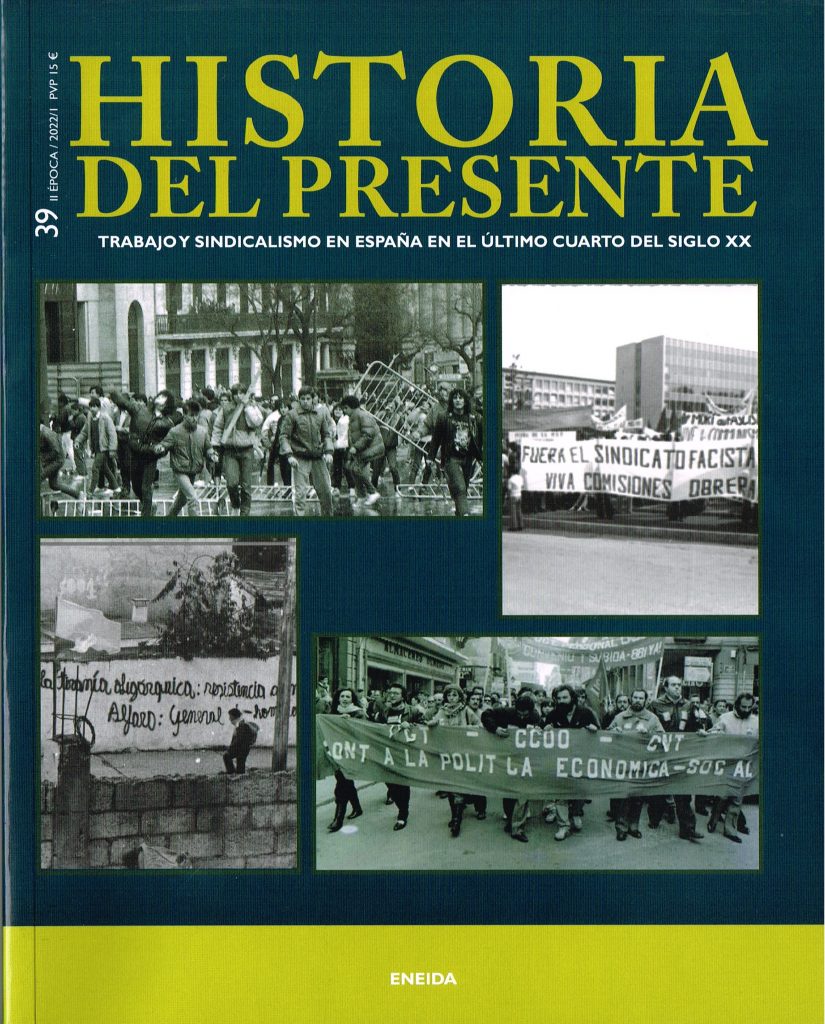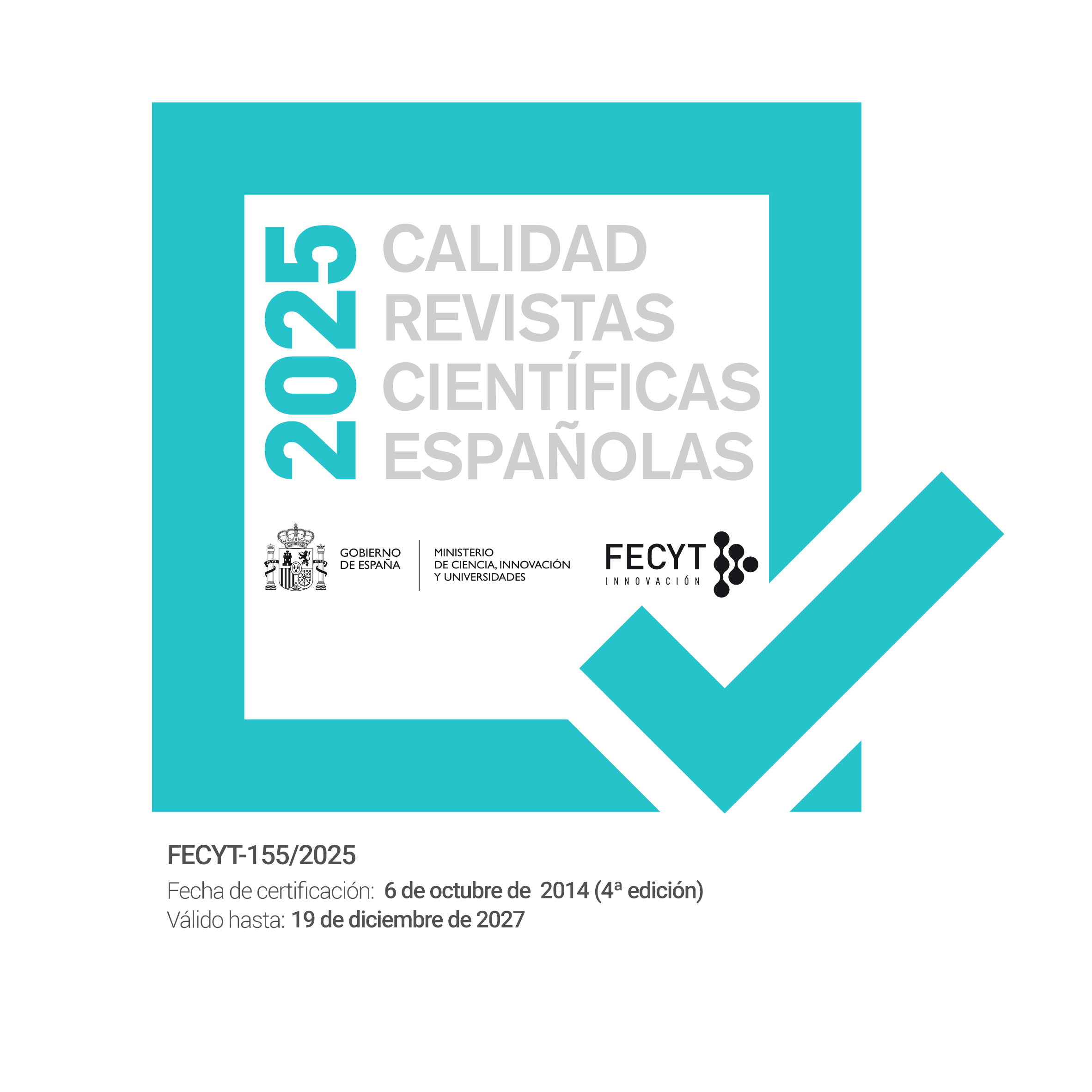Modernity as mestizaje. life and death of the ecuadorian guerrilla «Alfaro Vive Carajo»
DOI:
https://doi.org/10.5944/hdp.39.2022.40353Keywords:
Modernity, Decoloniality, Guerrilla, Mestizaje, Ecuador, Life StoryAbstract
The life stories of the guerrilla leaders Juan Cuvi and Edgar Frias (Colorado) illustrate the recent history of Ecuador. From being activist during the eighties in the guerrilla ‘Alfaro Vive Carajo’, they became civil servants working for Correa´s «revolución ciudadana» (RC) at the beginning of the new century. The life stories of Colorado and Cuvi are framed within the second half of the twentieth century, when, in most of Latin America, the armed insurgency turned, some decades later, into the rule of left-wing constitutional governments. AVC in Ecuador mirrored mestizo identity as an expression of the impoverished urban middle class. The end of the RC coincided with the end of left-wing governments in Latin America and underlines the fact that the mestizo identity failed to connect with the lifestyles and traditions of the indigenous communities.
Downloads
References
AGEE, Philip, Galarza, Jaime y Francisco Aráuz La CIA contra América. Latina. Caso especial: Ecuador, Quito: Ministerio de Relaciones Exteriores...
ASHCROFT, Bill. Griffiths, Gareth, Tiffin, Helen,Post-Colonial Studies. The Key Concepts, London and New York: Routledge, 2000.
AGUILAR, Santiago. Arturo Jarrín. La encrucijada de un hombre sereno, Quito: FLAP, 2016.
AGUILAR, Santiago. «La derrota del guerrillero urbano en la novela latinoamericana». Tesis doctoral: Universidad Complutense de Madrid, 2019.
AYALA MORA, Enrique. Resumen de historia del Ecuador, Quito: Universidad Andina Simón Bolívar,2012.
AYALA MORAA, Enrique. «La otra cara del crimen de El Ejido», Procesos. Revista Ecuatoriana deH istoria, I semestre, 2012.
BAILY, C.A, The Birth of the Modern World. GlobalConnections and Comparations, 1780-1914. Oxford:Blackwell Publishing, 2004.
BHABHA, Homi K, The Location of Culture, London and New York: Routledge, 1994.
BELLI, Gioconda, La mujer habitada, Barcelona: Seix Barral, 2010.
BOTELLA, Joan. «En torno al concepto de cultura política: dificultades y recursos». En Cultura Política. Pilar del Castillo e Ismael Crespo....
BUSCHGES, Christian, Bustos, Guillermo, y Olaf Kaltmeier (compiladores), Etnicidad y poder en los países andinos, Quito: Universidad Andina...
CORR, Rachel. Ritual and Remembrance in the Ecuadorian Andes, Tucson: The University of Arizona Press, 2010.
CUEVA, Agustín, El proceso de dominación política en el Ecuador, México D.F: Editorial Diógenes, 1974.
CHASTEEN, John Charles. Born in Blood and Fire.Concise History of Latin America, New York and London: W. W. Norton and Company, 2016.
ECHEVERRÍA, Bolívar. La modernidad de lo Barroco .México D.F: Ediciones Era, 1998.
FREYRE, Gilberto. The Masters and the Slaves. A Study in the Development of Brazilian Civilization. Berkeley, Los Angeles and London: University...
FIGUEROA SÁNCHEZ, José Antonio. Guerrilleros delos Andes. Quito: El Conejo, 1972.
FRÍAS, Edgar A. AVC por dentro, Quito: Libro auto editado, 1999.
GEETZ, Clifford, The Interpretation of Cultures, NewYork: Basic Books, 1977.
GILROY, Paul, The Black Atlantic. Modernity and DoubleConciousness. London and New York: Verso,1995.
GOETSCHEL, Ana María. Quito en los inicios de la modernidad. Quito: Abya-Yala, 1999.
GOETCHEL, Ana María, Moral y Orden. La delincuecia en los inicios de la modernidad en Ecuador, Quito:FLACSO – Abya Yala, 2019.
GUERRERO CAZAR, Fernando y Ospina Peralta, Pablo, El poder de la comunidad. Ajuste estructural y movimiento indígena en los Andes ecuatorianos,...
HERRERA, Jimmy, «La memoria como escenario: La cárcel y el movimiento insurgente Alfaro Vive Carajo!», Quito: Tesis de Maestría. Universidad...
JARAMILLO, Pío, El indio ecuatoriano, Quito: Editorial Quito, 1922.
JIMÉNEZ GÓMEZ, Diana Lorena, «Las mujeres nuevas de Alfaro Vive Carajo. Identidades de género, experiencias, historia y memoria política”,...
KINGMAN, Eduardo. La ciudad y los otros. Quito,1860-1940. Higienismo, ornato y policía. FLACSO-Ecuador, 2006.
LOUISE PRATT, Mary, «Fieldwork in Common Places», En Writing Culture. The Poetics and Politicsof Ethnography, Editado por James Clifford andGeorge...
LEECH, Garry, The FARC: The Longest Insurgency, ZedBooks: London and New York, 2011
MIGNOLO, Walter D. y Walsh, Catherine E, On Decoloniality.Concepts, Analytics and Praxis, Durhamand London: Duke University Press, 2018.
MOREANO, Alejandro. El devastado jardín del Paraíso. Quito: El Conejo, 1990.
MOREANO, Alejandro, Entre la ira y la esperanza y otros ensayos de crítica latinoamericana. Quito: CLACSO, 2008.
POLLARD ROWE, Ann, Weaving and Dyeing in HighlandEcuador, Austin: University of Texas Press,2007.
RÍOS, Jerónimo y Sánchez, Marté, Breve historia de Sendero Luminoso, Madrid: Catarata, 2018.
RÍOS SIERRA, Jerónimo, «Semblanzas revolucionarias de la izquierda peruana: Haya de la Torre, José Carlos Mariátegui, Alan García y Sendero...
ROBINSON, Cedric J, Marxismo negro. La formación de la tradición radical negra, Madrid: Editorial Traficantes de Sueños, 2021.
RODRIGUEZ JARAMILLO, Antonio, Memoria de las espadas. Alfaro Vive Carajo. Los argumentos de la historia, Quito: Ediciones Abya-Yala, 2014.
SACKS, Oliver, El hombre que confundió a su mujer con un sombrero, Barcelona: Muchnik Editores,1987.
SARTORI, Giovanni, Partidos y sistemas de partidos, Madrid, Alianza Editorial, 1980.
SOLÍS CHIRIBOGA, María Cristina, «Reparación a víctimas de violaciones de derechos humanos en Ecuador,» Iconos, Revista de Ciencias Sociales.Num...
TERÁN, Juan Fernando, «¡Alfaro Vive Carajo! Y laucha por el olvido», Ecuador debate, 67, Quito,(2006).
VAN VLEET, Krista E. Performing Kinship. Narrative,Gender and the intimacies of Power in the Andes,Austin: University of Texas Press, 2008.
VELÁZQUEZ, Carlos Alfonso, La esquiva terminación del conflicto armado en Colombia, Medellín:Carrera Editores, 2011.
ZANATTA, Loris, Historia de América Latina, Buenos Aires: Siglo XXI Editores, 2010.
WEISMANTEL, Mary, Cholas and Pistacos. Stories ofRace and Sex in the Andes, London: The Universityof Chicago Press, 2001.
Downloads
Published
How to Cite
Issue
Section
License
Copyright (c) 2024 Nicolás Buckley

This work is licensed under a Creative Commons Attribution-NonCommercial 4.0 International License.
Esta obra está bajo una licencia internacional de uso: Atribución-NoComercial 4.0 Internacional https://creativecommons.org/licenses/by-nc/4.0/deed.es
Esta licencia permite a otros compartir el trabajo con un reconocimiento de la autoría del trabajo y de la publicación inicial en esta revista. Se pueden copiar, usar, difundir, transmitir y exponer públicamente, siempre que: i) se cite la autoría y la fuente original de su publicación (revista, editorial y URL de la obra); ii) no se usen para fines comerciales.









